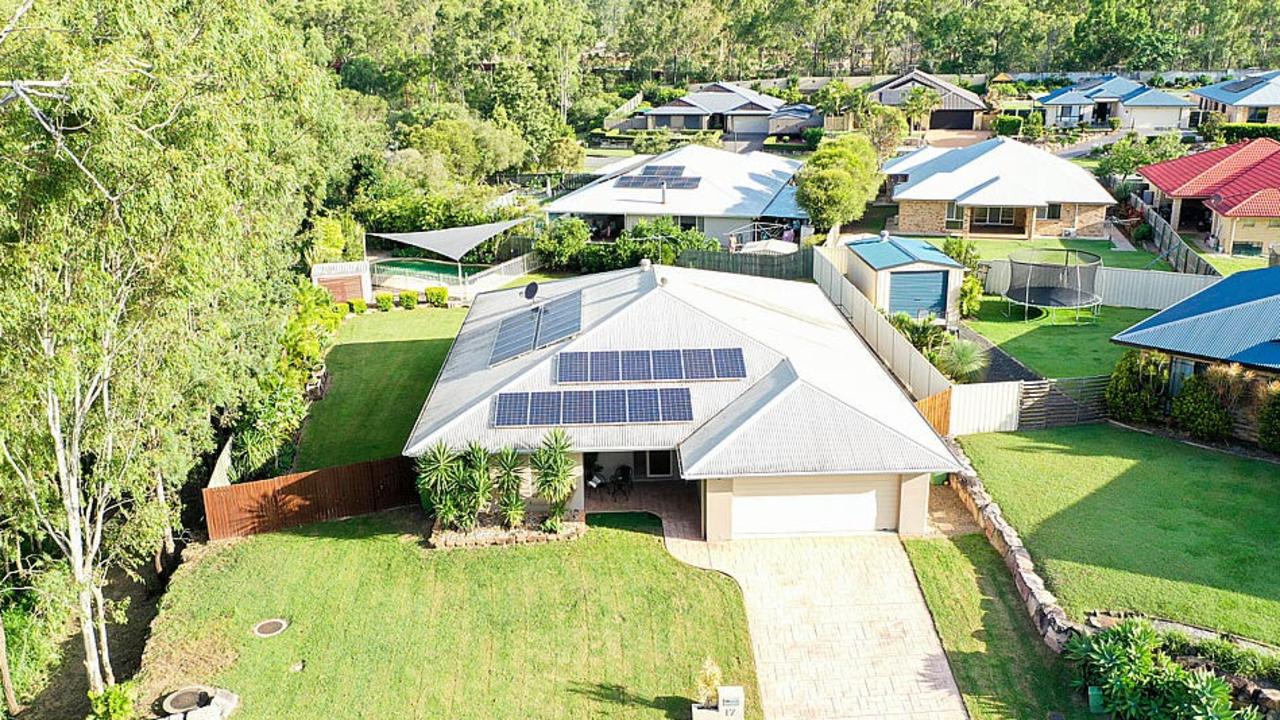How the University of Southern Queensland survived COVID-19
THE University of Southern Queensland is focusing on investing in the future as it continues to find its path out of the COVID-19 pandemic.

Ipswich
Don't miss out on the headlines from Ipswich. Followed categories will be added to My News.
THE University of Southern Queensland is focusing on investing in the future as it continues to find its path out of the COVID-19 pandemic.
Vice Chancellor Professor Geraldine Mackenzie said the university had sharpened its efforts in online delivery throughout the health crisis and life was returning back to the three campuses in Toowoomba, Springfield and Ipswich.
The university, unlike counterparts across Queensland and Australia, has not had to lay off staff because of the pandemic.
"So far we've been able to weather it by cutting down expenses and saving cash wherever we could and being very, very careful," Professor Mackenzie said.
"By the same token we've been very careful about recruitment.
"The focus now is on investing in the future, that's what's really important as we don't want to lose the opportunities that are coming."
While a number of universities around Australia are reliant on international students, and the course fees they bring in, USQ had a relatively low number of international students, which helped the university avoid some of the issues faced by other universities.
The pandemic meant in semester one, and now semester two, a vast majority of the those international students weren't able to come to Australia to study.
"For us we've been lightly touched as we had comparatively few international students, and hardly any students from China, which was a developing market for us," Prof Mackenzie said.
"What we've been able to do this semester is commence international students online, which was greatly assisted by government policy changes in the past two weeks."
The university last year introduced a new international strategy focusing on high quality partnerships and relationships, which is set to continue.
"That strategy has already served us well this year and has demonstrated it's the right way to go," Prof Mackenzie said.
"We're looking to develop those relationships so that we can have a more sustainable international focus."
While many universities scrambled to set up online learning infrastructure for students during the first wave of the pandemic, USQ, having been a leader in the online learning space for over 20 years, already had the infrastructure and place.
Prof Mackenzie said this wasn't as much as an impost on USQ as it would have been on other universities.
"That by no means underestimates how difficult it was for our staff doing it in such a hurry and moving themselves off campus," she said.
"For our staff it was a major change, they have just been incredible throughout all of this."
Prof Mackenzie said online education would continue to be a key part of USQ's offering into the future, and COVID-19 had allowed the university to refine and sharpen how online education worked.
"We had some new initiatives (during semester one this year) that we haven't done before, like online exams," she said.
"We trialled this in first semester, now we are able to take it and work on it.
"For students, that'll be a good thing going forward."
The university has also trialled new ways of how higher education, especially post graduate study, operates during the pandemic.
About 1300 people enrolled in the university's UpSkill program which offered free courses in several subject areas for anyone who wanted to study them.
The university also introduced 20 new short courses, online programs studied over a semester, that led to a formal undergraduate or graduate certificate.

"We had 300 enrolments in those six months certificates programs," the Vice Chancellor said.
"That's a model we can take forward into the future.
"It allows people to dip into higher education without committing to a higher degree.
"They can then go on and take the semester they've done and enrol in a degree if they want, there's nothing but positives from it."
This change to smaller, more focused courses in higher education was something Prof Mackenzie said she had been interested in exploring for a long time.
"Staff were remarkable in pulling this together at short notice," she said.
"We will keep on offering those as well.
"This situation, while it was absolutely terrible and there's no other way of describing it, it opened up opportunities to move more quickly and innovate.
"Innovation is critical to the university throughout this process."
She said the university was currently offering a wide-range of on campus activities.
"While not the full range, it's a pretty wide range of activities and campus life has really started again in the last few weeks," she said.
"We're monitoring the situation in Queensland very closely and will be able to move very quickly should things escalate."
Next month Professor Mackenzie will celebrate three years in the role as USQ Vice Chancellor.
"None of us could ever imagine anything like this would happen," she said.
"We have sustainable model to get through this, we didn't have high reliance on international students, we're focusing on regional communities and focusing on the needs of people who wanted to enrol online and study when they choose to do so.
"We've been offering flexibility for a long time, and that's something I believe in education is critical.
"I'm passionate about education. I've been in education full time for 30 years and feel extremely lucky to lead such a remarkable university,
"We're facing the challenge and we have demonstrated we are in a strong position to go into the future, whatever that may be."








